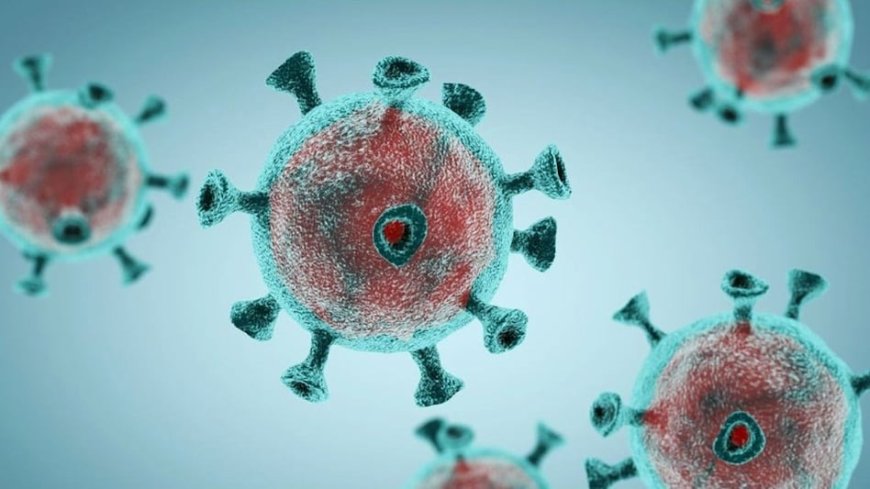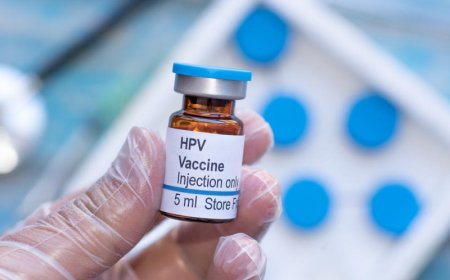Latest on COVID Variant JN.1: What You Need to Know About Symptoms, Spread, and Vaccination
Essential insights on JN.1, the latest COVID variant. Learn about symptoms, spread, and vaccination. Stay informed and stay safe.

Recently, the United States has been dealing with the rapid spread of a new COVID variant, JN.1, marking a significant increase in infections. As the nation enters the peak respiratory virus season, there's growing concern about the impact of this highly mutated strain.
According to the latest data from the U.S. Centers for Disease Control and Prevention (CDC), JN.1 is now the fastest-growing variant in the country, making up more than one-fifth of all infections. While the dominant strain remains HV.1, JN.1 is catching up fast, accounting for about 21% of cases during the two weeks ending on Dec. 9.
Scientists are closely watching JN.1 due to its rapid growth rate and numerous mutations. This variant is a direct offshoot of BA.2.86, also known as "Pirola," which has been circulating in the U.S. since the summer. With one additional mutation compared to its parent strain, JN.1 is causing heightened concerns within the medical community.
Experts are closely observing JN.1 to understand its characteristics and implications. Dr. William Schaffner, a professor of infectious diseases at Vanderbilt University Medical Center, compares the various COVID variants to an extended family, each with its distinctive traits.
First detected in September 2023, JN.1 has already spread to at least 12 countries, including the U.S., making it part of the omicron family. Dr. Andrew Pekosz from the Johns Hopkins Bloomberg School of Public Health highlights that JN.1 descended from BA.2.86, which initially raised worries but eventually diminished in impact.
Unlike its predecessor, JN.1 has gained momentum, with its prevalence increasing from less than 1% to over 20% of COVID-19 cases in just a few weeks, as noted by Dr. Michael Phillips, chief epidemiologist at NYU Langone Health.
Understanding JN.1 Symptoms and Its Transmissibility: What We Know
The symptoms associated with JN.1 appear to be consistent with those caused by other variants, including sore throat, congestion, runny nose, cough, fatigue, headache, muscle aches, fever or chills, and loss of sense of taste or smell. Although it remains uncertain if JN.1 causes different symptoms, experts emphasize the importance of testing for anyone experiencing illness or potential exposure to COVID-19.
As for transmissibility, JN.1 is suspected to be more contagious than its parent virus, given the observed increase in case numbers. The mutation in its spike protein, crucial for virus-cell interaction, may contribute to its fast growth rate. However, the CDC reassures that JN.1 does not pose an increased public health risk compared to other circulating variants.
Impact on COVID-19 Testing and Vaccination: Insights and Recommendations
All COVID-19 diagnostic tests, including rapid antigen tests and PCR tests, are expected to be effective in detecting JN.1. Testing remains a crucial tool, especially during the current surge in COVID hospitalizations and influenza spread.
The new, updated COVID-19 vaccines are anticipated to provide increased protection against JN.1 and other variants. Despite targeting omicron XBB.1.5, the vaccine is shown to generate a robust immune response against JN.1's parent strain, BA.2.86. Vaccination remains a key strategy in preventing severe disease, hospitalization, and death.
However, there is concern about the low uptake of the new vaccine in the U.S. population. As of the latest CDC data, only about 17% of adults, 7% of children, and 36% of adults aged 65 and older have received the new vaccine. Experts urge everyone, especially high-risk individuals, to get vaccinated and emphasize that it's the best present for oneself and family during the holiday season.
Protecting Against JN.1: Recommended Measures
As the threat of JN.1 looms, experts recommend several measures to protect oneself and others:
-
Stay up to date with COVID-19 vaccines.
-
Test if you have symptoms.
-
Isolate if you have COVID-19.
-
Avoid contact with sick people.
-
Improve ventilation.
-
Wear a mask in crowded, indoor spaces.
-
Wash your hands with soap and water.
Amidst the rising concerns, timely testing, vaccination, and adherence to preventive measures are crucial in curbing the potential impact of JN.1 and safeguarding public health.
Must Read: Health Expert's Tips for Staying Healthy Amid Respiratory Concerns in China











































